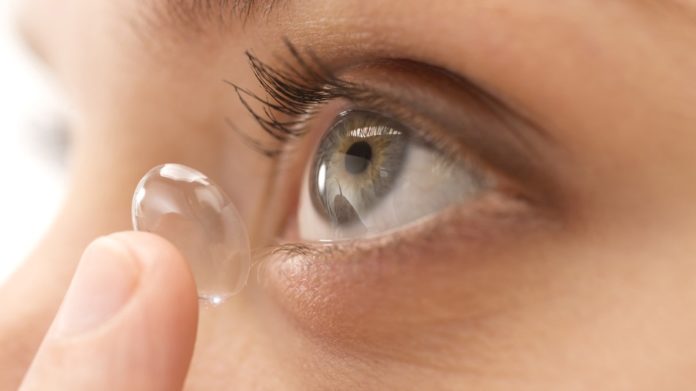Contact lenses may alter the eye’s natural bacteria, a new study shows

Wearing contact lenses may change the community of bacteria living in your eyes, according to a small new study.
In the study, the surface of the eye in the people who wore contact lenses had triple the proportion of certain bacteria species, on average, compared with the people in the study who did not wear the lenses, researchers found.
Moreover, the researchers found differences in the composition of the bacterial community on the surface of people’s eyes. In the people who wore contact lenses, this composition more closely resembled the bacteria on the individuals’ eyelids, as compared to the nonwearers. The study included nine people who wore contacts and 11 who did not.
“Our research clearly shows that putting a foreign object, such as a contact lens, on the eye is not a neutral act,” study author Maria Gloria Dominguez-Bello, a microbiologist at NYU Langone Medical Center, said in a statement.
More research is needed to examine whether these changes in eye bacteria come from fingers touching the eye, or whether the pressure of a contact lens somehow alters the immune system in the eye, she said.
The findings may shed some light on “the long-standing problem of why contact-lens wearers are more prone to eye infections than non-lens wearers,” Dominguez-Bello said.
Since the introduction of soft contact lenses in the 1970s, there has been an increase in the prevalence of corneal ulcers, which are sores on the transparent covering of the eye, study co-author Dr. Jack Dodick, a professor and chair of ophthalmology at NYU Langone, said in a statement.
One type of bacteria that may cause corneal ulcers, called Pseudomonas, was more abundant in the eyes of people who wore contacts, the study found. Because these bacteria may come to the eyes from the skin, people should pay close attention to eyelid and hand hygiene to avoid getting corneal ulcers, Dodick said.
More studies need to be conducted to see how exactly these differences in bacterial composition may affect eye health, the researchers said.
Millions of people wear contact lenses, and even though these individuals may have an altered bacterial community in the eye, most do not experience complications related to wearing the lenses, said Dr. Mark Fromer, an ophthalmologist at Lenox Hill Hospital in New York.
However, when such complications do occur, they are quite serious, Fromer told Live Science.
There are simple steps that all contact-lens wearers can take to prevent potential complications from wearing the lenses, Fromer said. “Wash your hands, change your lens solution every day, keep your lens case clean,” he said. People using daily lenses, which need to be changed every day, should not keep wearing the same lenses for several weeks, he said.
Individuals should also visit their ophthalmologists regularly to check on their eye health. And if lenses feel uncomfortable, the wearers should take them out and consult their ophthalmologists, Fromer said.
“If something does not feel right, it means that it is not right,” he said.
The results were presented on May 31 at the annual meeting of the American Society for Microbiology in New Orleans.
- Photos: ‘Dementor’ Wasps, Fanged Bats & Other Bizarre Species of the Greater Mekong
- Cultic Seal May Show Oldest Depiction of Music and Revelry in Israel
- Jet Stream Steers Atlantic Currents
- How Computers Can Teach Themselves to Recognize Cats
This article originally published at LiveScience here

